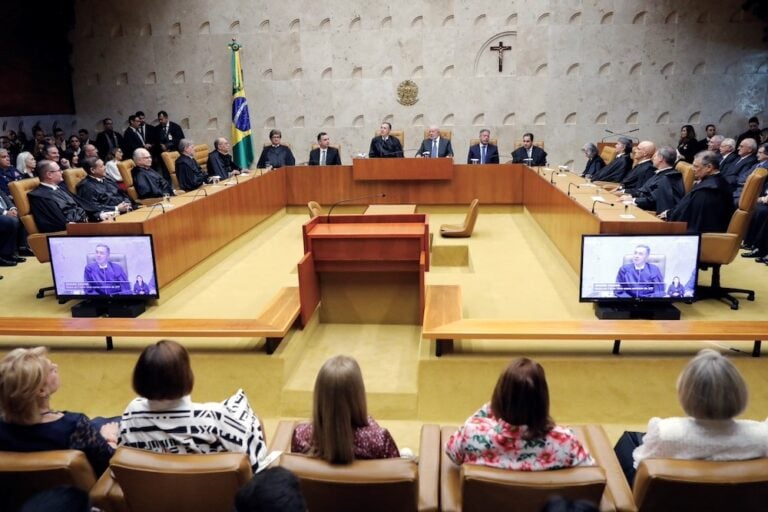Journalist and cameraman Anderson Leandro da Silva was last seen on 10 October 2012 in Curitaba, Parana state, when he left the offices of Quem TV, the station he owns, headed for Quatro Barras, in the Curitaba metropolitan area.
UPDATE: Police find journalist’s body, say murder was crime of passion (RSF, 19 October 2012)
Journalist and cameraman Anderson Leandro da Silva was last seen on 10 October 2012 in Curitaba, Parana state, when he left the offices of Quem TV, the station he owns, headed for Quatro Barras, in the Curitaba metropolitan area, report both the Brasilian journalists group Associação Brasileira de Jornalismo Investigativo (Abraji) and Reporters Without Borders (RSF).
According to the Abraji statement, Da Silva, 38, has worked as a journalist for 25 years, covering social movements and working with civil society groups. He has witnessed clashes between various groups and police and in 2008 was hit with a rubber bullet when filming a confrontation between police and people being evicted from an industrial area. The incident was covered in the press and Da Silva received death threats that are thought to have come from police, says RSF.
When the journalist did not arrive back from Quatro Barras, his son called Da Silva’s wife to tell him he was missing. Da Silva had left the TV station office in the early afternoon and by midnight his family was seraching for him, Abraji reported. His sister Angela believes his disappearance is connected to his work and the film recordings he has made of many conflicts.
“When a journalist disappears in this part of the world, many people are reminded of the not-so-distant time when freedom of information was permanently violated by censorship and repression…this freedom still needs to be won through people such as Anderson Leandro,” said RSF.
The RSF press release mentions, worryingly, that the Paraná Union of Professional Journalists (Sindjor-PR) is reporting instances of threats being received by other journalists who have commented on Da Silva’s disappearance.
So far there have been no charges to the journalist’s credit card, nor withdrawals made from his bank account, and the car he was driving has not been found.
According to Abraji, “Strong evidence shows that this is another serious attempt against journalism, with characteristics that are typical of revenge for his journalistic activity. The authorities must undertake a timely investigation of the case.”


